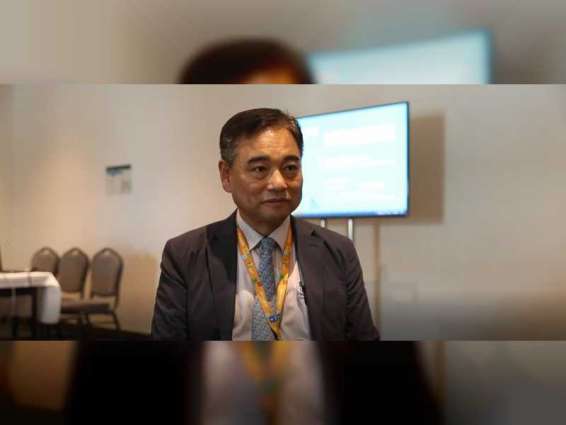ABU DHABI, (Pakistan Point News - 05th Mar, 2020) Remittances from Korean construction workers and engineers in the UAE in 1970s and 1980s contributed to the rapid development of South Korea, according to a senior Korean official.
"We earned investment capital for the development of our country from their remittances," said Maeng Hoon Kang, Deputy Mayor for Urban Regeneration at Seoul Metropolitan Government.
As the Korean economy started growing, the flow of workers tapered off by mid-1980s and since then only engineers were coming to the UAE, he added in an interview with the Emirates news Agency, WAM.
South Korea is the 12th largest economy in the world today and Asia’s fourth largest.
The relationship with the UAE, which begun with supplying workers and engineers, peaked after awarding a contract to build Barakah Nuclear Power Plant in Abu Dhabi to a South Korean consortium in 2009.
The UAE’s Federal Authority for Nuclear Regulation, FANR, announced on Monday that it had overseen loading of the nuclear fuel assemblies into Unit 1 of the power plant. With this development, the UAE has officially become the first nuclear energy operating country in the Arab World.
Korean engineers were also involved in construction of major landmarks in Dubai and Abu Dhabi, including Burj Khalifa, the deputy mayor noted.
According to Shim Ui-Sup, the Emeritus Professor at Myongji University in South Korea, the outflow of construction workers to the middle East contributed in a major way to South Korean economic growth and the country’s balance of trade.
The flow of Korean workers to the Middle East started in 1975 with 3,931 workers and by early 1980, there were 100,000 workers involved in construction projects in the region, he said in his research paper titled ‘South Korean Workers and the Middle East Construction Boom in the 1970s.’ The Korean workers’ number reached its peak in late 1982 with a total of 160,002, but the number then begun to decline slowly, with 150,115 workers in late 1983 onwards, he explained.
Talking about Seoul Metropolitan Government’s sustainable development agenda, the deputy mayor said, "We focus on upliftment of marginalised segment of the population and addressing low birth rate that impede the city’s growth, along with other issues related to environment and climate change."
In late 1950s and 1960s, about one million babies were born annually in South Korea, which declined to around 350,000 in recent years, Kang noted, describing it as a "concern."
Adults marrying late due to their focus on higher education and career, and lack of support for child rearing are reasons of low birth rate.
The city government has been giving many incentives and support systems to encourage married couples to have children, however, "the existing measures have not made enough results and we are thinking of new steps," he said.




